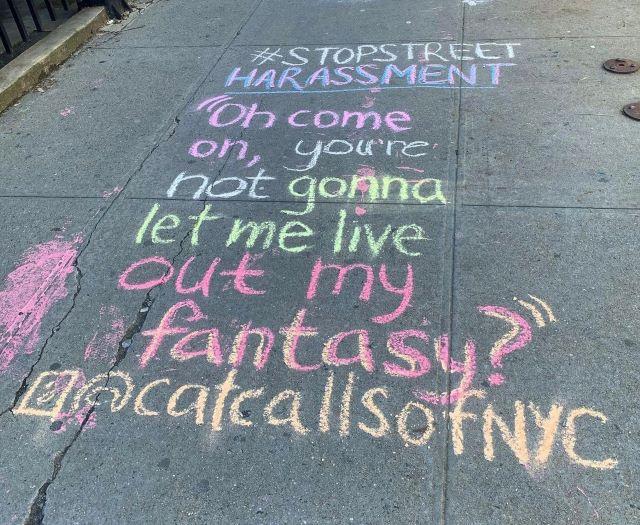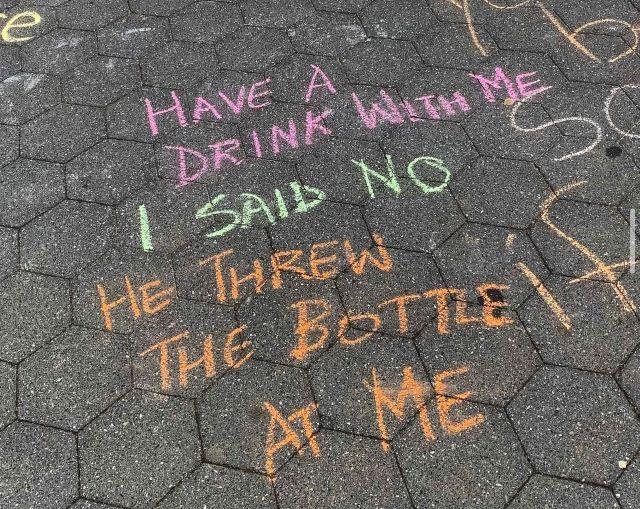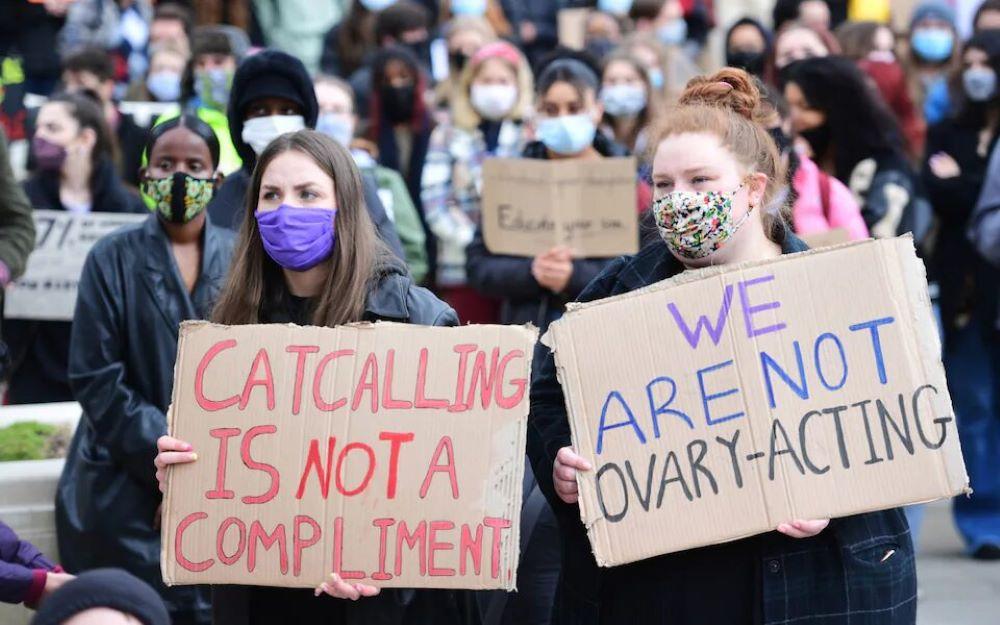By Georgia Rousta,
Catcalling! From a very young age, too young of an age to be frank, girls, teenagers, and women are obligated to face on a daily basis a form of street harassment whose main and most frequent source is, indeed, men. Whistling, honking, and — more often than not — hideous remarks being shouted at them are some of the most common experiences women have in regard to being catcalled. It does not matter where you are, with whom, or how you are dressed to be catcalled, the only thing needed is another person, usually male, willing to act upon their wrongful belief that they are entitled to such an action. After all, very well before they have the mental maturity to understand exactly what is happening to them, girls are exposed to the venom of catcalling.
You might be thinking, that, referring to catcalling as “venom” is quite far-fetched. I beg to differ. Around the time when girls are beginning to hit puberty, or even before that, they are obliged to come across remarks and comments about their physical appearance by strangers, even before they can come to terms with themselves. Comments about their face, body, beauty, and the sexualization of all of them, when they have no awareness of such qualities of themselves yet, could only plant a venomous seed in their minds making them believe that their only worth comes from male validation of their appearance.

It does not even have to be a sexual comment. As mentioned, a whistle, a car honk, or even a “well-mannered compliment” is enough to make the receiver of them feel uncomfortable and possibly in danger. The sad reality is that most women have become immune to such ways due to their commonality and widespread repetition or even if they have not mastered the art of not being influenced by them, they have been at such a place enough times to be able to put up a strong front.
At times, though, this antithesis and collision between their crushing inner world and self-worth and the unbothered act they are putting up can be even more damaging to their self-image than just accepting their feelings. By trying to seem untouched by catcalling, while simultaneously, and rightfully so, being insulted and trying to suppress their being offended and verbally assaulted, because catcalling is a form of verbal harassment, a vicious circle is created with women being assaulted verbally daily and having to deal with the trauma that comes with it alone and men feeling as if they are entitled to such behaviors continuing to live in their patriarchal bubble, whose remains — to an unjust extend — we call our world.

It seems like the only way to “cure catcalling” -and I’m using quotation marks because catcalling is not a disease to be cured, but behavior and problematic mental complex that needs to be reversed and not passed on to the next generation — is to fight it, having secured the victim’s safety beforehand, of course. There are many ways to fight back, but one that caught my interest thanks to its creativity and bluntness is the work of Catcalls of NYC.
By writing with chalk on the pavements of New York the disgusting, insulting, degrading “compliments”, to the eyes of the ones who say them out loud, being addressed to women and girls, on one hand, they have created comfort for women to feel like they are being heard and seen and, on the other hand, an unpleasant feeling to the offenders by having their words, or words similar to theirs, poking them daily and reminding them of their words with every step they take. After all, that was the actual reasoning behind starting such a project, to spread awareness about street harassment.
Catcalls of NYU were only the beginning, a wave of new Instagram profiles addressing street harassment all around the world has risen shortly after the original one. London, Madrid, Mexico, Amsterdam, and Rome are a few of the cities that have followed suit after Catcalls of NYU gained more popularity filling streets worldwide with colorfully written insults.

Due to the harshness of this reaction to catcalling a lot of backlash has been surrounding this phenomenon. Little kids are reading things that should not, it is a form of vandalism, by writing catcalls on pavements there is no bettering of reality. In reality, though, little kids may not have read those remarks had they not been written on the sidewalks, but they have definitely heard them directly from the catcaller’s mouth, writing with chalk on pavements in some countries is a form of speech expression or street art. As for the question of how helpful Catcalls of NYC is, the love they have received and the community of safety and acceptance they have created is the answer.
What we are asking is the bare minimum for all reasons: to live our daily lives with no aimless interference by strangers thinking they have a right to our bodies and self-worth. Thankfully, we have reached a point in human relationships in which it is evident that one’s appearance is not definitive of their character and value — even though at times one’s behavior changes depending on the other person’s looks — and in which comments on a person’s body and image are unacceptable. How is it possible that we still normalize and accept such comments from complete strangers?
References
- What is catcalling?. nssgclub.com. Available here
-
Fed up with hearing catcalls on the street, women around the world are fighting back – with chalk. edition.cnn.com. Available here
- Catcalls of NYC official website. catcallsofnyc.com. Available here




